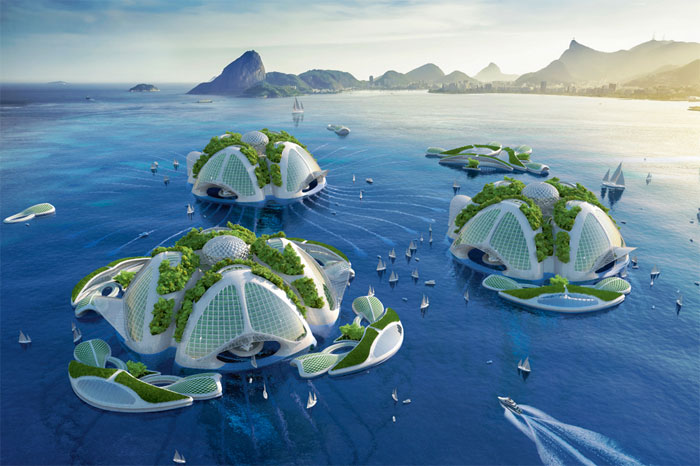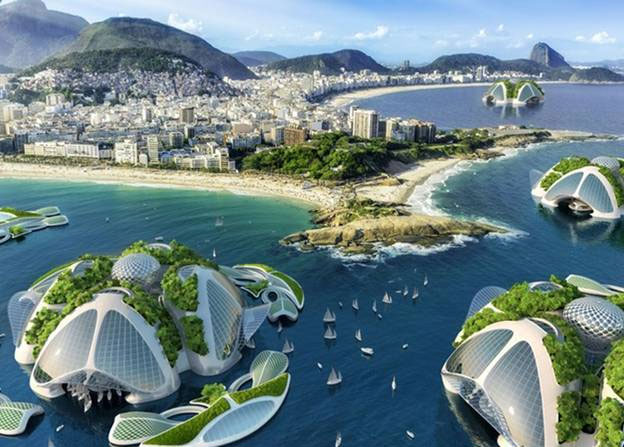The underwater village is independent of energy
Design firm Vincent Callebaut is in the research and development stage of an "underwater village" called "Aequorea" and can be a means to independent energy in the future.
The underwater village of the future can be located on the coast of Rio de Janeiro aiming to find sustainable solutions to climate change by promoting marine life. The proposed project to recycle plastic contaminates the ocean and converts floating garbage into construction materials for maritime and engineering architectures.
"Aequorea" provides a sustainable housing for people affected by climate change by creating a new civilization. Complex of self-sufficient, self-powered, recycling all waste and ocean acidification.

Aequoreas is not only an architectural proposal but architects also devise an economic system to supplement its self-sufficient energy.
After construction, friendly ecosystems will continue to grow and natural calcification, using calcium carbonate contained in water to form an outer frame. In addition, semi-permeable membranes for desalination in seawater and microalgae will produce energy for heating and climate control.
Moving villages like ships and submarines, can accommodate up to 20,000 people. The main access is located on the water, leading through four yachts that are connected to a mangrove forest originating from a floating dome with a diameter of 500m. The village consists of modular housing units, workspaces, recycling plants, science laboratories, hotels, education, sports and farms. The twisted structures of the super-resistant tower with hydrostatic pressure along with the geometric design can reduce motion sickness.

Moving villages like ships and submarines, can accommodate up to 20,000 people.
Algae, plankton and mollusks are rich in minerals, proteins, vitamins that are grown as food and maintained as "nurseries for aquatic animals and plants". Production from organic farms, orchards and vegetable gardens on ships is distributed in large quantities and is reused. Even furniture is made from biological materials glued together with mussel synthetic materials.
Aequoreas is not only an architectural proposal but architects also devise an economic system to supplement its self-sufficient energy. A model based on "eco-conscious individual entrepreneurship" acts as the economic and social pillar of an utopian society.

"Underwater farm" seen from the air.

Floating dome for organic agriculture.

The system of traveling boats connects to the mangrove forest.

Garden area and overhead observation system.

Biological food garden and marina.

Scientific basis and technical surfaces.
- The $ 900 million village does not use a car
- The unique villages in the world
- 15 villages as beautiful as fairy tales
- Ecological village does not use electricity in the Netherlands
- Devotees head to the ancient village in Turkey
- Cold with the most mysterious village in Italy
- America seeks to develop green energy from waves
- The underwater record for 73 days
- Chu Cat Bagua village and Khong Minh's
- Underwater photography techniques make you squint
- The secret of the strange village where for 50 years no children were born
- Mysterious and strange village story people do not dare to wear shoes
 Norway built the world's tallest wooden tower
Norway built the world's tallest wooden tower Kremlin
Kremlin Ashurbanipal: The oldest royal library in the world
Ashurbanipal: The oldest royal library in the world Decoding the thousand-year construction of Qin Shihuang shocked the world
Decoding the thousand-year construction of Qin Shihuang shocked the world